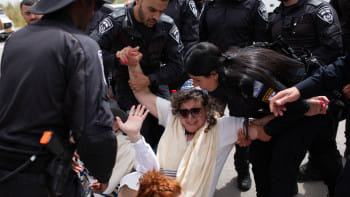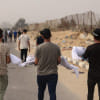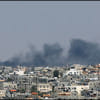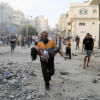What could the recent ICC warrants mean?

The arrest warrants by the International Criminal Court (ICC) are the latest development in the ongoing genocide in Gaza. Karim Khan, the chief prosecutor of ICC, has stated that there are "reasonable grounds" for regarding Israeli Prime Minister Benjamin Netanyahu and Defence Minister Yoav Gallant as having "criminal responsibility" for "war crimes and crimes against humanity." Also implicated in the case are Hamas leaders Mohammed Diab Ibrahim al-Masri (better known as Mohammed Deif), Yahya Sinwar, and Ismail Haniyeh.
The news may not come across as surprising to those who have kept abreast of the issue since October 7, 2023. The landmark hearing in January in the International Court of Justice involved determining whether Israel's actions in Gaza can be termed a genocide. South Africa brought the case forward with an 84-page document and allegations that the 1948 Genocide Convention had been violated by Israel. What this groundbreaking decision by South Africa made clear was that nations are now willing to hold Israel accountable in a way that is unprecedented. The state of Israel has long enjoyed the military and political support of the US, its strongest ally and the most powerful nation in the world. However, international reactions to Israel have largely changed with the onslaught of violence directed at Palestinian civilians in Gaza over the past eight months. Now, with the ICC warrants, renewed pressure has fallen on the Israeli officials who have faced widespread condemnation across the globe.
Over the years, the ICC has had its shortcomings. Karim Khan's statements about a "senior leader" stating that the ICC was "built for Africa and thugs like Putin" and not Western nations and their allies brings to the fore a crucial criticism that has been levied against it for years: that it is not impartial, and operates in a manner more beneficial to the West and detrimental to the rest of the world. Among all the ICC investigations to date, all except one investigation took place in a country outside the African continent.
Moreover, while 124 countries have ratified the Rome Statute of the International Criminal Court in 1998, powerful countries such as China, Russia, India, and the United States have not. This means that there are cases when the ICC's jurisdiction may not extend to these countries. For the US, there is a history of hostile reactions to the ICC—George W Bush pressured the governments of other nations to not prosecute US nationals under the ICC, Donald Trump refused to cooperate with ICC and stated in the UN General Assembly that it will neither support nor recognise it, and Mike Pompeo, the secretary of state under Trump, announced visa bans would be imposed on ICC officials.
Adding to the problems is that the recent arrest warrants may create an impression that there is an equivalence between the aforementioned Hamas leaders and Netanyahu and Gallant. It bolsters the typical bothsideism that has been present in the arguments of many who have been unwilling to fully condemn the severe brutality committed by Israel against the population in Gaza. Not only does such an idea not take into account the unequal powers of the two groups, but it also pushes to the wayside the many actions of Netanyahu that may have helped in empowering Hamas.
Netanyahu's own reaction to the arrest warrant has been inflammatory. He has called it an "outrage of historic proportions," and Benny Gantz, a member of Israel's war cabinet, stated, "Drawing parallels between the leaders of a democratic country determined to defend itself from despicable terror to leaders of a blood-thirsty terror organisation is a deep distortion of justice and blatant moral bankruptcy."
Moreover, if the harsh reactions of the US is anything to go by, it appears that the arrest warrants may have an impact on the current Israeli head of state, and place further pressures on US-Israeli relations as deeper fissures between the public and the government's stances continue to widen in the year of an election.
It is imperative for us to remember that should arrest warrants against Benjamin Netanyahu and Yoav Gallant come into effect, much more will still need to occur for a permanent ceasefire, and eventually, a liberated Palestinian state. Netanyahu is one piece of the puzzle. As noted by Mairav Zonszein, the senior Israel analyst at the International Crisis Group, some of the problem lies in Israeli society—with significant numbers of people supporting Netanyahu's destructive policies against Palestinians. From Hasbara to campaigns by the American Defamation League, concerted efforts have been made over decades to convince both the Israeli population and the American Jewish population that the state of Israel is essential for the safety of Jews even as Israel's actions are, in fact, harming the Jewish community. The punishment of Netanyahu, Gallant, and the aforementioned Hamas leaders will not undo the irreparable damage caused by the 75-year occupation and settler colonial project.
We should, therefore, be cautious of an excessive focus on Netanyahu, as might once again be the case with the ICC's arrest warrants. The ICC's decision is part of a long line of beginnings holding Israel accountable for its actions over 75 years, for which it has not faced any consequences.
Aliza Rahman is a member of the editorial team at The Daily Star.
Views expressed in this article are the author's own.
Follow The Daily Star Opinion on Facebook for the latest opinions, commentaries and analyses by experts and professionals. To contribute your article or letter to The Daily Star Opinion, see our guidelines for submission.

 For all latest news, follow The Daily Star's Google News channel.
For all latest news, follow The Daily Star's Google News channel. 










Comments